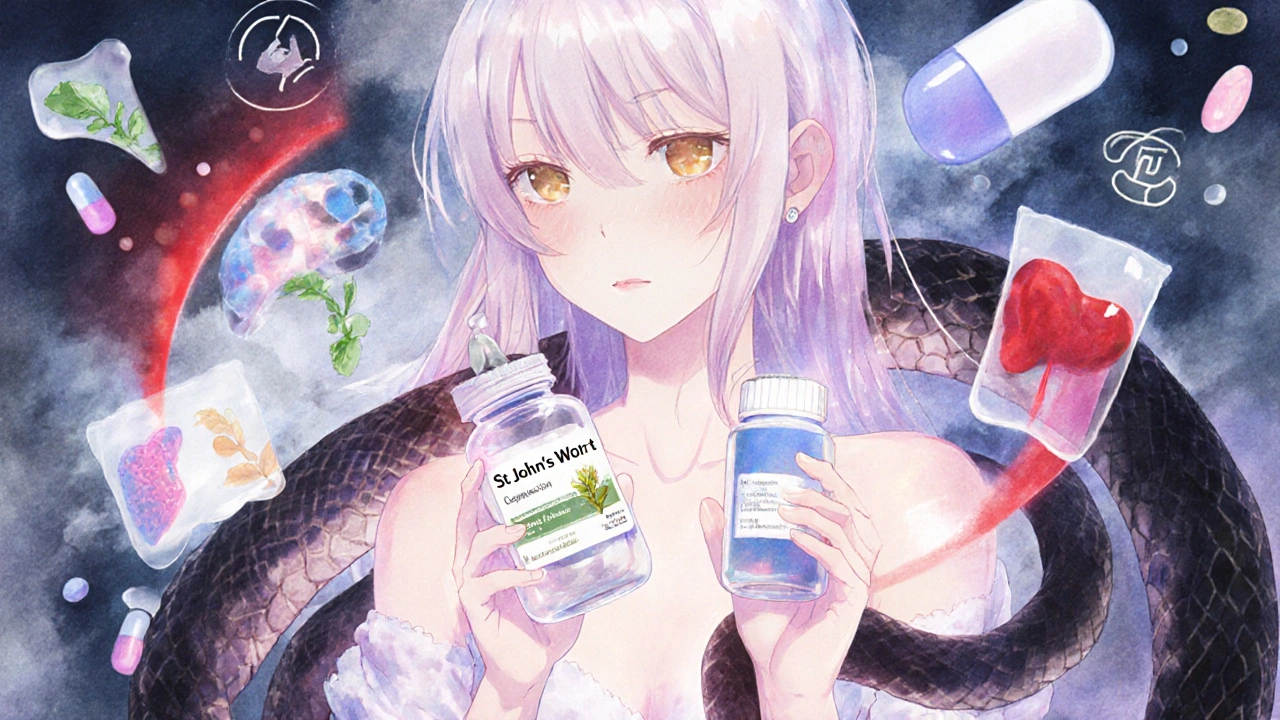Supplement and Medication Interactions: What You Need to Know
When you take a supplement and medication interaction, a potentially dangerous clash between a dietary supplement and a prescription or over-the-counter drug. Also known as drug-supplement conflict, it can turn a harmless pill into a health risk. Many people think supplements are safe because they’re natural—but that’s not true. Garlic pills can thin your blood just like aspirin. St. John’s wort can make your antidepressant useless or cause serotonin syndrome. Even something as simple as vitamin K can undo the effect of warfarin. These aren’t rare cases. They happen every day, often without anyone realizing it.
It’s not just herbs and vitamins. Minerals like calcium and magnesium can block how your body absorbs antibiotics. Iron supplements can stick to thyroid meds and stop them from working. If you’re on blood pressure drugs, grapefruit juice—yes, the juice—can spike your medication levels to dangerous points. And if you’re taking something for diabetes, certain supplements can drop your blood sugar too low. The problem isn’t the supplement itself. It’s the lack of communication. Most people don’t tell their doctor they’re taking ashwagandha, fish oil, or magnesium because they don’t think it counts. But your doctor needs to know everything you swallow, even if it’s labeled "natural" or "dietary."
Some of the most common risks show up in people managing chronic conditions. If you’re on statins for cholesterol, red yeast rice can multiply the muscle damage risk. If you’re taking blood thinners, ginkgo biloba or high-dose vitamin E can raise your chance of bleeding. Even common OTC painkillers like ibuprofen can become risky when mixed with certain herbal anti-inflammatories. And seniors? They’re at the highest risk. Aging slows how your liver and kidneys process drugs, so even small interactions can hit harder. That’s why the Beers Criteria exists—to warn doctors about drugs and combos that are too dangerous for older adults.
You don’t need to stop all supplements. But you do need to be smart. Ask your pharmacist: "Does this interact with anything I’m taking?" Write down every pill, powder, and drop you use. Bring that list to every appointment. Don’t assume your doctor knows what’s in your medicine cabinet. If you’re on a new drug, check if your supplement is on the list of known troublemakers. And if you start feeling weird—dizziness, nausea, heart palpitations, unexplained bruising—stop the supplement and call your doctor. These aren’t just side effects. They could be signs of a hidden interaction.
Below, you’ll find real-world examples of how specific drugs and supplements collide. From antihistamines like desloratadine to diabetes meds like DPP-4 inhibitors, from blood thinners to immune system triggers like IgA deficiency—these posts don’t guess. They show you exactly what happens when supplements meet prescriptions. You’ll learn what to avoid, what to monitor, and how to talk to your care team without sounding like you’re arguing. This isn’t theory. It’s what’s happening to real people right now. And you need to know it before it happens to you.

